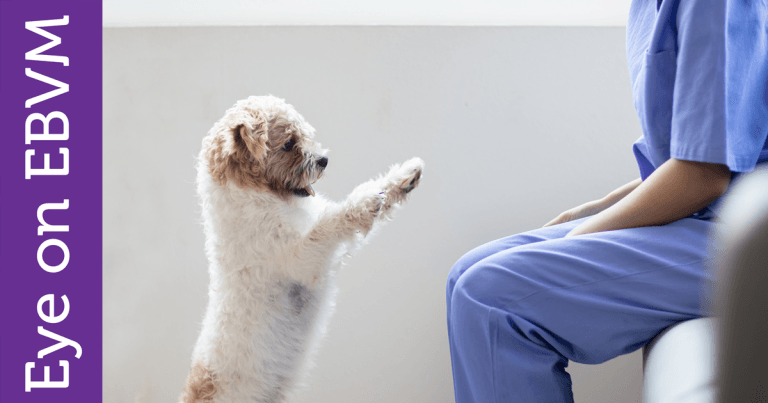1 Nov 2023
Antimicrobial resistance is one of the biggest global health issues of our time. Amanda Curtis RVN, chats about her contribution to VetTeamAMR – a new initiative from charity RCVS Knowledge that helps veterinary teams improve their antimicrobial use.

Image © thatinchain / Adobe Stock
My veterinary nursing journey began in 2006, and I have spent much of my clinical career between primary care practice and referral hospitals, where I specialised in emergency and critical care.
In 2020, I transitioned out of clinical practice into non-clinical work to teach student veterinary nurses. I now work for Essity as an education sales consultant, aiming to remove the confusion around wound dressing selection and promoting best evidence and antimicrobial stewardship (AMS) within wound care for veterinary professionals. I am passionate about improving AMS.
I was first introduced to the concept of clinical auditing and Quality Improvement (QI) after attending a lecture at a BVNA Congress by Pam Mosedale; it gave me a spark that I wanted to ignite. I started to research these topics and discovered the charity RCVS Knowledge.
While I had always advocated for evidence-based practice in my clinical work, I was curious about how to engage my colleagues in this approach, shifting from the familiar mantras of “that’s just how we’ve always done it” or “we don’t have any problems”.
RCVS Knowledge introduced me to invaluable tools that I added to my QI toolbox. These tools facilitated the implementation of clinical audits and much more into my practice.
Antimicrobial resistance (AMR) is a one health issue and should be a priority for all health care professionals. When RCVS Knowledge approached me to contribute to its new initiative, VetTeamAMR, I was thrilled to be a part of it.
VetTeamAMR is a collection of free resources designed to assist veterinary teams in enhancing their antimicrobial use. The VetTeamAMR Learning Platform provides veterinary teams with access to free CPD, empowering them to expand their knowledge on AMS and boost their confidence. The VetTeamAMR Audit Tool aids teams in assessing their current antimicrobial usage practices and devising steps to improve responsible prescribing.
My passion for wound care and evidence-based wound management principles naturally led me to VetTeamAMR. My role involved creating concise webinars for veterinary nurses, aimed at fortifying their understanding of minimising the risk of wound infections, identifying pertinent risk factors and, ultimately, reducing the need for antibiotics in wound patients. The goal is to preserve antibiotics for cases where they are truly needed.
But this is not just about safeguarding systemic antibiotics; it also extends to topical antimicrobials. Given their extensive use in both human and animal health, the emergence of AMR in topical preparations demands our attention. We need to consider the wound dressings we use and why.
VetTeamAMR is there to support busy veterinary teams by providing quick and easily digestible bite-size learning that helps to broaden knowledge and increase confidence.
As practice life is ever changing and evolving, it can be challenging to try to implement new ways of practice, so VetTeamAMR has created a space for those who want to delve deeper into this area, but also provides short, topic-specific videos that do not require huge amounts of time and can be shared with the whole team.
The content covers equine, companion animal and exotics, with the Equine Antibiotic Audit Tool providing a platform for collecting antibiotic prescription and use, and making auditing appropriate use of antimicrobials in everyday practice simpler. The Companion Animal Audit Tool is currently being developed.
VetTeamAMR serves as a catalyst for conversations across all levels of veterinary practice, whether in referral or primary care settings. It lays the foundation for discussions on AMS or strengthens existing practices where AMS is already embraced.
For those just embarking on this journey, the easily accessible resources aids in building expertise. And for the champions of AMS, the annual RCVS Knowledge Antimicrobial Stewardship Awards celebrate remarkable efforts invested in promoting AMS practices.
As RVNs, we can influence patient care and improve clinical standards across diverse veterinary settings. Improving AMS is a pivotal part of our role and we can get involved in a variety of ways.
We are essential in infection prevention and management within our practices. This role encompasses the training of new support and nursing team members, as well as fostering bonds with pet owners through education.
Constructive conversations about the appropriate use of antimicrobials and antiparasitics can reshape pet owners’ perceptions of AMR, and clarify why antibiotics may not always be necessary for their animals.
We can leverage our role as RVNs to educate pet owners through social media campaigns, spotlighting the topic of AMR and showcasing our practice’s commitment to promoting AMS.
I encourage all nurses to explore VetTeamAMR on the RCVS Knowledge website and enrol in the VetTeamAMR Learning Platform.
The platform offers an array of quick, user-friendly resources to assist RVNs keen on delving into AMS and integrating AMS practices into their daily patient and client care routines.